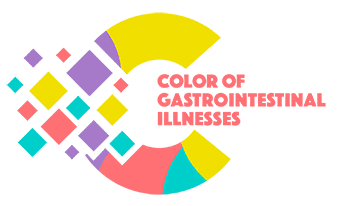What do you do when you’re told you have been diagnosed with an incurable disease?
Well, this was my story, the two words Ulcerative Colitis was foreign to me. The first time I heard of Ulcerative Colitis is when I woke up after getting a colonoscopy, my G.I. doctor handed me a pamphlet that explained (IBD) Inflammatory Bowel Disease. At this point, I was told that I had chronic inflammation of my G.I. track and in order to manage the disease, I would need to need to take medication for the rest of my life.
The symptoms that come with ulcerative colitis was embarrassing enough, I’m talking about diarrhea, blood in the stool, abdominal cramping, fatigue, urgency to defecate, the symptoms go on and on. Although I continued to partner with my GI doctors to manage my condition, I wasn’t comfortable with sharing what I was really going through with my family and friends. For years I suffered in silence.
Even in the corporate workplace, I felt I was the only person of color that had this disease. There would be times I would mention Crohns or Ulcerative Colitis and no one could relate.
Why is this? Why did I feel like I was the only African American woman with this disease?
I was aware this diseases could affect any race, however, in my personal experience, when joining support groups it was extremely rare that I would see a minority in the group tell their story or discussed life living with inflammatory bowel disease. When searching online, I read that Caucasians have the highest risk of the disease, it can occur in any race. If you’re of Jewish descent, your risk is even higher. (Mayo Foundation for Medical Education and Research, 1998-2021). So I just figured I was one of the few African American women living with Ulcerative Colitis.
Over the years, I have seen more minorities speak up and share their stories around IBD. This is very important because minority groups are often underrepresented. If the diversity is not captured in the IBD journey, especially when it comes to clinical trials, this may lead to disconnect of information regarding ethnic responses to medication and treatments.
In 2015, an estimated 1.3% of US adults (3 million) reported being diagnosed with IBD. (Centers for Disease Control and Prevention, August 2020); however, I feel as though the awareness is still low. This is why I feel it is important for me to share my IBD journey. I am an African American woman who was diagnosed with an invisible illness, but I refuse to be invisible, representation matters.
Getting involved and being an advocate for IBD is something that we all benefit from no matter our race or social status. Further multicultural research is vital to ensure everyone with IBD has the appropriate care. Providing preventative health screenings, and focusing on health education is important. This is why we continuing to advocate Step Therapy, Restroom Access, Out of Pocket Cost, and focus on multicultural clinical trials; at the end of the day, we are all in this together.
Let’s continue to overcome the disparities in healthcare and bring awareness to IBD.
Blessings,
Kimberly M Hooks
@kimberlymhooks

